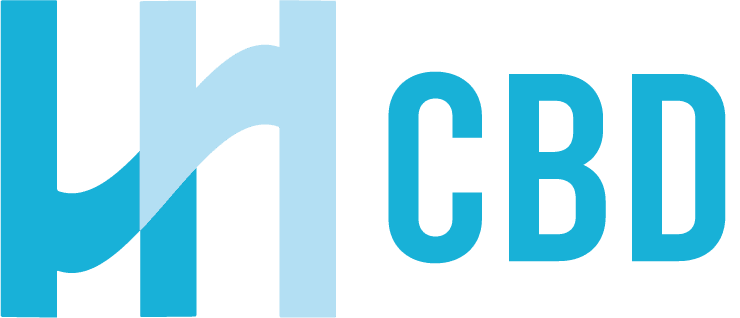Is H4CBD legal?

H4CBD: A synthetic molecule or cannabinoid that is legal in France and virtually all of Europe, except for Switzerland.
This substance is more potent than CBD and is primarily developed in France. In this article, we will explore the legal aspects of H4CBD in France and Europe, as well as THC levels in H4CBD products, tips for compliance with H4CBD legislation, and the future of H4CBD legislation.
H4CBD: Some Clarifications
H4CBD is a synthetic molecule similar to CBD but more potent.
Derived from cannabis, it is considered legal in many countries, including France. Manufactured by adding hydrogen atoms to CBD, it poses no health risks and has become a more powerful alternative to CBD. H4CBD is used to treat various conditions, including pain, anxiety, and inflammation. It is also used in candies or vapes, but it is predominantly available in the form of flowers and resins. This follows consumer demand, with many consumers preferring this cannabinoid in these forms. The molecule binds to the CB1 and CB2 receptors of the endocannabinoid system.
Legislation on H4CBD
The legal status of H4CBD varies from country to country. In France, H4CBD, like CBD, is considered legal as long as it contains less than 0.3% THC. In many European countries, H4CBD is also considered legal, provided it contains less than 0.3% THC. However, it's important to note that the legal status of H4CBD can vary based on local laws and regulations.
In the United States, H4CBD is not considered legal at the federal level. However, some states have laws allowing the use of H4CBD for medicinal purposes. It's essential to check local laws before using or selling H4CBD products.
Laws on H4CBD in France
In France, H4CBD is legal, provided it contains less than 0.3% THC. This substance is regulated by French narcotics law. Products containing H4CBD, CBD, THC-P, and other cannabinoids must be labeled accordingly and sold in packaging that does not suggest they contain cannabis. Manufacturers must also ensure their products do not contain contaminants or illegal substances.
Products containing H4CBD must be sold in licensed stores and cannot be sold to minors. Manufacturers and distributors must also comply with product safety and quality rules. Products containing H4CBD must not be consumed in public and should not be used for driving or tasks requiring sustained attention.
Laws on H4CBD in Europe
In many European countries, H4CBD is considered legal, provided it contains less than 0.3% THC. However, it's important to note that the legal status of H4CBD can vary based on local laws and regulations. Manufacturers and distributors must comply with product safety and quality rules. Products containing H4CBD must not be sold to minors and should not be consumed in public.
It's crucial to note that H4CBD is not considered legal in all European countries. For example, in Switzerland, H4CBD is considered a prohibited substance. Therefore, it's essential to check local laws before using or selling H4CBD products.
The Importance of THC Levels in H4CBD Products
THC is the psychoactive compound in cannabis. Although H4CBD is considered legal, it's crucial to ensure that products containing H4CBD do not have high THC levels. Products containing H4CBD must contain less than 0.3% THC in France and many European countries. THC levels can be tested in the laboratory to ensure products comply with the law.
THC levels can vary depending on how H4CBD is manufactured and stored. Therefore, it's crucial to ensure that manufacturers and distributors follow strict procedures to guarantee that THC levels remain <0.3% THC. Products containing H4CBD must also be clearly labeled to indicate their THC content, as done by H4CBD-store.fr.
Tips for Compliance with H4CBD Legislation
To comply with H4CBD legislation, it's important to follow local rules and regulations, especially in the hemp industry. Products containing H4CBD must be clearly labeled and sold in packaging that does not suggest they contain cannabis. Manufacturers and distributors must also ensure their products do not contain contaminants or illegal substances.
Products containing H4CBD should only be sold in licensed stores and should not be sold to minors. Manufacturers and distributors must also adhere to product safety and quality regulations. Products containing H4CBD, CBD, or other cannabinoids should not be consumed in public and should not be used for driving or tasks requiring sustained attention.
The Future of H4CBD Legislation
The future of H4CBD and CBD legislation is uncertain. While H4CBD is considered legal in many countries, laws and regulations may change in the future. Manufacturers and distributors must be prepared to adapt to legislative changes.
It's also possible that new research will be conducted on the effects of H4CBD. The results of this research could influence future legislation. Therefore, manufacturers and distributors must stay informed about the latest research and trends in H4CBD.
Summary of H4CBD Legality
H4CBD is a synthetic molecule that is legal in France and most European countries, except for Switzerland. This substance is used to treat various conditions and is also used in beauty products and dietary supplements. To comply with H4CBD legislation, it's important to follow local rules and regulations. Manufacturers and distributors must be prepared to adapt to legislative changes and stay informed about the latest research and trends in H4CBD, CBD, and other cannabinoids.


 ENG
ENG
 Français
Français Deutsch
Deutsch Español
Español